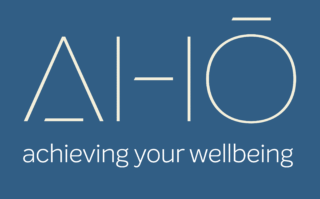The orientation to mindfulness practice is gaining momentum in the West, we are now joining the troves of people from cultures that have been meditating for, well… thousands of years. It is estimated that 300-500 million people mediate globally. In recent years Coca-Cola, Apple, Google, Nike, and LinkedIn have spent a billion dollars on mindfulness training. 36 million Americans alone have mindfulness practices. So, if you meditate you aren’t alone and if you don’t this blog will give you a little insight into some of the benefits.
What is Meditation?

Techniques for this focusing on your breathing, to counting, to repeating a mantra among others, all with the same intention to distract the mind from wandering into thought. But why is it important to practice not thinking? Well, we know that a thought is an electromagnetic signal. These signals cause a cascade of hormones to be released throughout the body that give us our feeling. We then base our judgments on these feelings. And it is these judgments that give us our daily experiences.
The problem with thought is it does not have any matter, and we exist in the three-dimensional world of matter. Which means thoughts are not tangible to us. We cannot swipe a thought out of the way with a swift flick of the wrist or lock them away in a closet. Another issue is our minds can’t tell the difference between thought and what we know as reality from the detection of our senses. For example, have you ever had the experience of swimming in the ocean and thought of a shark, and immediately your fear response kicks in. Well, that’s an example of the process I mentioned above. It is the thoughts that gave you the fear not the sight of an actual shark. Now replace the example of the shark with the project that’s due, the argument you had with your significant other, or any other daily worry. Can you see how letting our thoughts run wild can create a quite stressful experience?
Studies have demonstrated that just four days of meditation have been shown to reduce the size of the amygdala, which is called the fear center of the brain. It actually changes the structure of the brain, so you do not perceive the things in your day as stressful or overwhelming as you once did.
The unknown power of the brain
We are only just starting to understand the computing power of our brains, but we are learning how a mindful practice can give us access to abilities we did not know were possible before. For example, we know the conscious brain or prefrontal cortex, which is responsible for calculations and special reasoning, is very slow compared to the unconscious brain. The conscious brain’s processing power can handle 120 bits of information at once whereas the unconscious brain can process billions of bits of information at a time. We have terabytes of info available we just can’t tap into it in our normal state.
We have been letting these brains that are safely tucked away behind the protective casing of the skull and which have no direct contact with the outside world, run the show unsupervised. We have to take charge of in our heads and meditation can help us do that. Millions of us are addicted to the chemical release of hormones and neurotransmitters that give us good feelings when we do things like eat or escape into TV or social media. We are trapped in this loop in part because our brains are constantly conjuring up scary scenarios and we look to these internal injections of pleasure just to cope. That’s why following a diet can feel so daunting, your coping mechanism has been taken away.
Our internal pharmacy
It is critical to find the function switch through mindfulness because we actually have access to all of the chemicals within our bodies that we need to fix ourselves. Our internal pharmacy of hormones and neurotransmitters, like norepinephrine, adrenalin, endorphins, dopamine, serotonin, and anandamide, are 300 times more potent than any recreational or pharmaceutical drug you can find.
Why you should try to include meditation in your health routine?
You see, mediation is not just a reprieve from the chaos of your day, it can significantly affect the quality of your life. As I mention at the beginning there are many forms of mediation, here we have touched on just a few of the benefits. This is why mindfulness is a cornerstone of our Optimal Living program.
We don’t know the capacity of human potential yet. We do know that meditation can lead to a healthier and happier life. We can’t rely on meditation alone to stay healthy – pairing exercise and meditation has been shown to have profound impacts on mood regulation! We also recommend focusing on a healthy diet…we’ll talk more on that another time.

